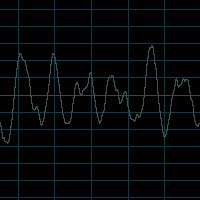|
|
 |
Who Makes Electronic Music?
Vocalists, Composers, Gender and Electronic Music Technology |
|
Hannah Bosma on
Jan 23 1998 |
issue 04 |
The article covers electronic and digital sound technology and gender studies. Vocalists, Composers, Gender and Electronic Music Technology
|
|
|
|
Electronic sound technology has influenced the development of music in many ways. For example, the emphasis on timbre or sound color in modern instrumental music is often related to experiences and ideas that were developed in electronic music, as is the case with for example the music of Gyrgy Ligeti. On the other hand, timbre was already becoming more and more important in instrumental music, as for example in the music of Edgard Varese (1883-1965). But, significantly, Varese was indeed dreaming of the possibilities of electronic or electroacoustic music - a dream that came true at the end of his life with the composition DÈserts (1954). The alternation of instrumental and electronic parts in this composition can be considered as a metaphor for the intertwining of social, cultural and technological factors in the development of techno-cultural phenomena like electronic music. Technology does not determine itself in an inevitable way, but is made by humans, men and women, in a social environment. Nor does technology inevitably determine cultural or social developments. Tech- nology can be used and developed in many different ways. It is important to watch out for the fallacy of technological determinism. When the consequences of technology are presented as inevitable, often interests, discrepancies, disagreements and power relations are concealed. Feminist studies of gender and technology often discover the refrain 'new technologies, old stories': new technologies as vehicles
for old gender patterns.
In relation to electronic sound technology, I have a nice techno-optimistic dream. Like most dreams, it is not so fantastic at all, and it can be observed in real life to some extent. One of the most important aspects of electronic and digital sound technology, that is, the recording of sound, can not only contribute to the emancipation of timbre, but also to a positive change in the role of the vocalist. And because vocalists are mostly female whereas composers are mostly male, this implies a positive change in musical gender roles.
|
| |
|
 |
|
 |
|

|
::CrossReference last 5 articles posted by Bosma :: Who Makes Electronic Music? - Jan 23 1998
|
|
|





